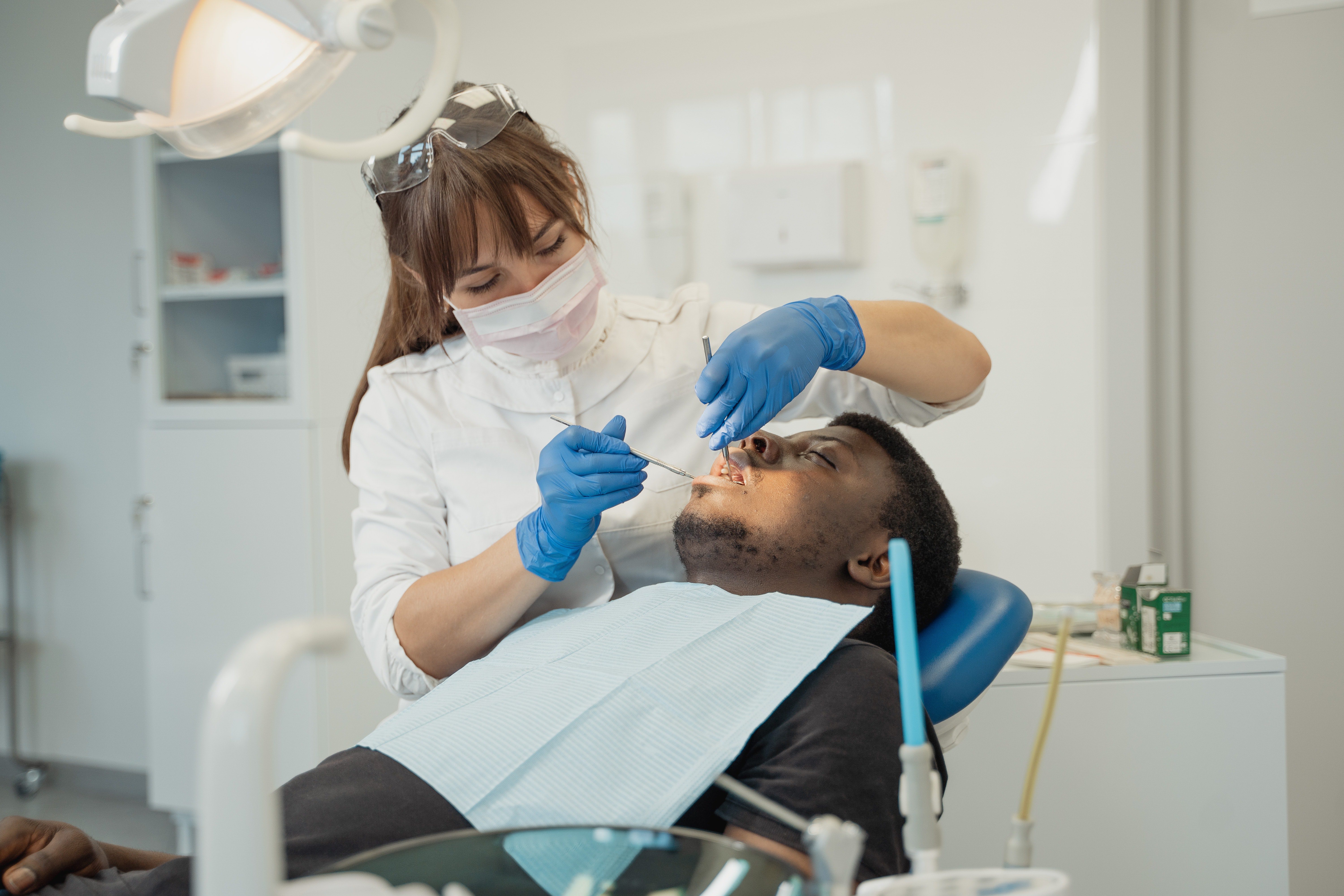Whether you’ve had wisdom teeth extracted, dental implants put in, or your gum line repaired, managing dental surgery recovery is an essential part of the healing process. Not all dental procedures are the same and your immediate symptoms may vary, but there are some precautions you should take afterwards to ensure you don’t disturb the blood clot, stitches, or implant.
With the expert team at Advanced Dental Care of Anderson, you can rest easy knowing all of your dental needs are being handled with the utmost care and consideration. We’ll walk you through the entire process, making sure you’re comfortable along the way, and we will send you home with the tips and tools necessary to recover. We’ve put together a quick reference of some the most important tips you should follow after having dental surgery.
How to Manage Your Dental Surgery Recovery from Home
Stop the Bleeding
Like any surgical procedure, bleeding is normal and should be expected for a short time after your procedure. Gently bite down on cotton gauze in your mouth to help stop the bleeding and encourage your body to start clotting. It’s not uncommon for bleeding to continue for 30-60 minutes after your surgery, but if you’re changing the gauze more frequently or if the bleeding doesn’t stop completely within 72 hours, give our office a call. Additionally, once the clot does form, guard it carefully as not to dislodge it and cause more bleeding. Dislodging a blood clot can lead to a dry socket, which is very painful. If you have a dry socket, come see us immediately so we can apply numbing agents to help alleviate your pain.
Switch to a Soft Diet
Immediately after surgery, give yourself some rest and stick to consuming soft foods such as yogurt, applesauce, and oatmeal. You should avoid hard foods or foods that are extreme in temperature. You’ll want to avoid chewing on meats or other foods that could dislodge your blood clot or irritate the area in your mouth that’s had work done. Avoid sugary, carbonated, or alcoholic beverages for a week or two, and slowly incorporate other foods back into your diet as you heal until you’re fully recovered and back to your normal diet.
Take Pain Medications
Your oral surgeon will likely prescribe you a small-dose pain medication that will help with post-surgery discomfort. This part is essential to managing dental surgery recovery since the level of pain varies from procedure to procedure and living with discomfort can put your body into a stressed state. If you’re unable to sleep or are too stressed to eat because of the pain, you won’t recover as quickly. If your medications don’t seem to be working, make sure you contact our office to let us know. We may also need to prescribe an antibiotic to help with the inflammation and any infection that you’re fighting.
Use Ice Packs
Another important part of managing dental surgery recovery is using ice packs to help with the swelling, especially if you’ve had a root canal or wisdom teeth extracted. It may be necessary to apply this compress for the first 24-48 hours after surgery, as it will certainly help with swelling, bruising, and discomfort your face might feel after the procedure. Depending on the type of surgery, it’s not uncommon for your jaw to be sore for a day or two. Using an ice pack, a bag of frozen peas, or even a cold washcloth can help with the soreness.
Check In
Following your surgery, you should check in with our office on a regular basis so we can ensure that everything is healing properly. Follow all of your post-surgical guidelines and notify us of any sudden changes in your health. We take your oral care very seriously, and your health is our number one concern. By checking in with us on a regular basis, we can monitor your progress and make adjustments as necessary. We can also check your jawbone structure and bite for any serious changes or concerns.
Dental Experts Who Care
Dr. Jay Elbrecht enjoys getting to know his patients in Anderson, Indiana, and is committed to providing the best dental care possible. His practice stays up to date on all the current advances and techniques in the industry, and they are always looking for ways to improve their procedures. If you’re looking for a dental expert who can walk you through a procedure and help you manage dental surgery recovery, give Advanced Dental Care of Anderson a try. Contact us today for your next appointment.
Photo by Tima Miroshnichenko from Pexels

